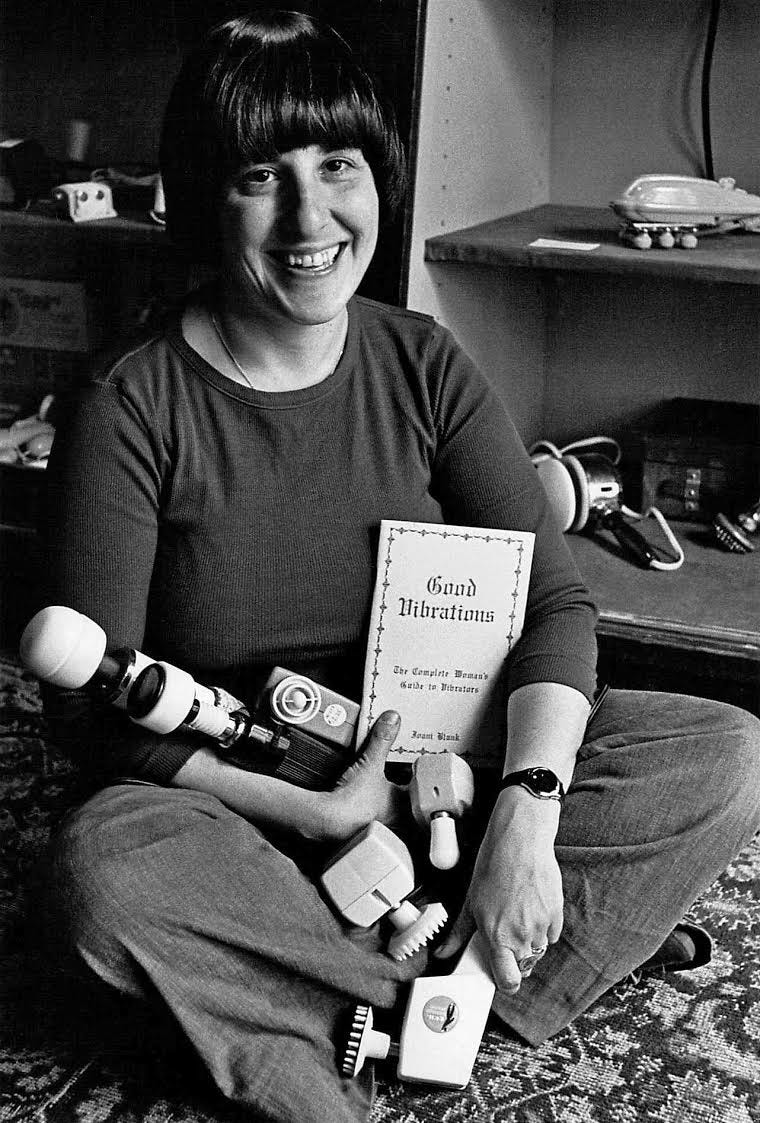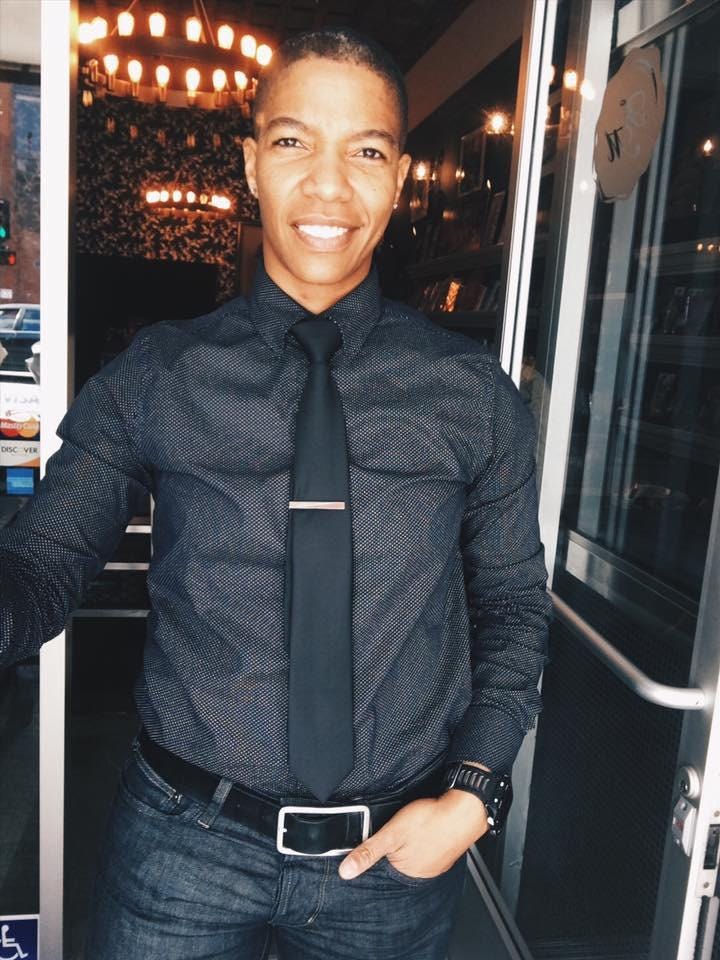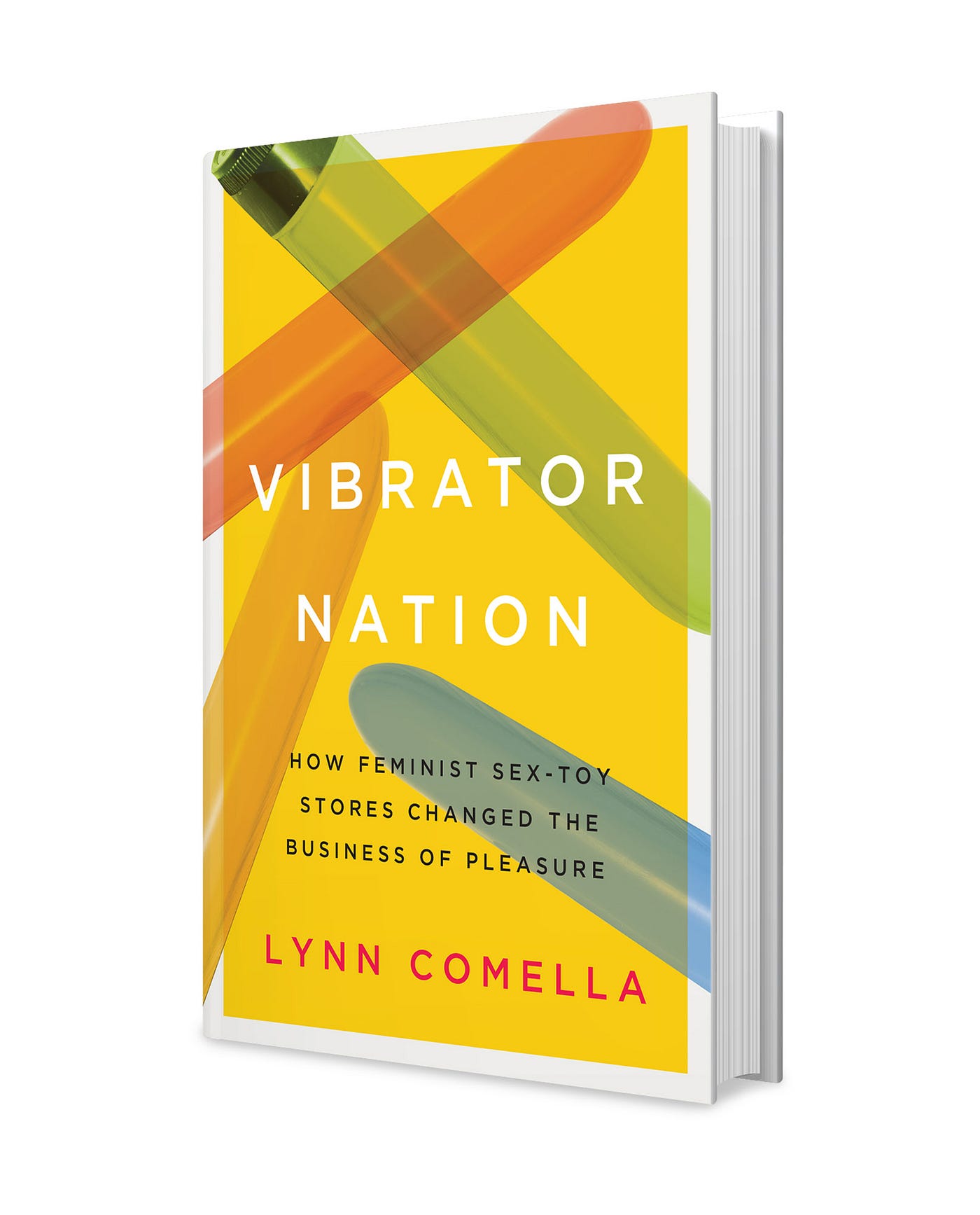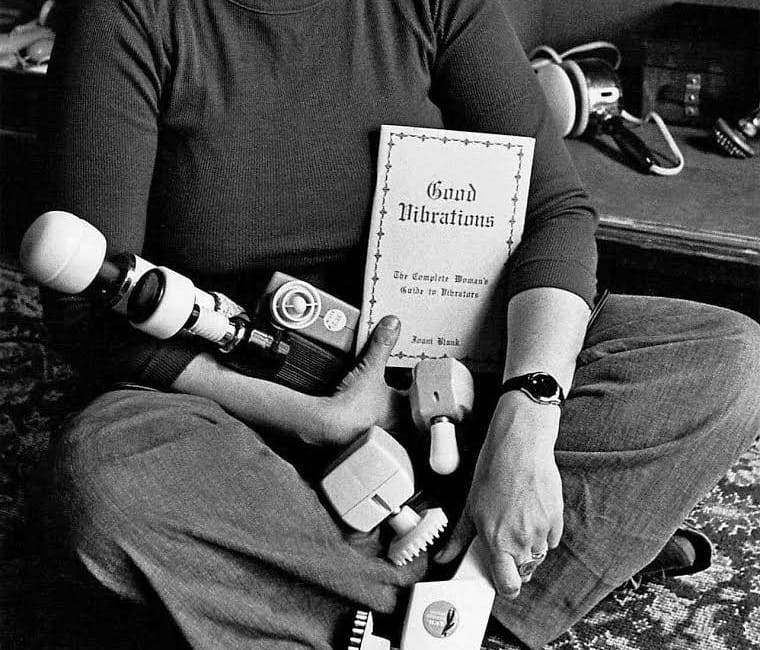
Walking into Feelmore Adult Gallery on Telegraph Avenue in Oakland feels like walking into an art gallery. The fixtures are bright and elegant; the walls are covered in a lush patterned wallpaper; and tasteful nudes hang just above rows of vibrators and lube. It’s this last part that might cause a double take—that is, if you aren’t from the Bay Area and don’t expect sex toys to be in such a clean, well-lit display.
Nenna Joiner is the owner and founder of Feelmore, which she opened in 2010 in downtown Oakland. Joiner opened Feelmore for two reasons: she dreamt of it in the mid-90s — literally — and she wanted to answer a need in her community. She explained that California’s tendency to be more accepting of progressive behaviors and attitudes has helped foster her store’s growth.

“I think people are open to experiencing cutting-edge things, and I think sex stores are that,” said Joiner. “In Oakland, specifically, I was the first to open a progressive store. Oakland has traditionally been a blue-collar town where small businesses make up a larger percentage…People are looking to the small business to create this landscape and this culture around not just product but around neighborhood.”
Between offering events like prison letter-writing projects, comedy shows, financial-responsibility workshops and art performances, Joiner has combined her passion for her community with her passion for sex positivity.
“We’re looking to redesign what sex stores are because, traditionally, a lot of people of color have been left out of the mix of sex positivity,” said Joiner. “I believe that being an African American business owner in the adult business has helped to create a level of visibility for us.”
Joiner frequently hears from other excited sex-positive entrepreneurs looking to open a store like hers or looking to bounce ideas off of her for their latest product — whether they’re stateside or as far away as Costa Rica and South Africa.
We’re looking to redesign what sex stores are because, traditionally, a lot of people of color have been left out of the mix of sex positivity.
Joiner’s model of joining community with commerce has a long history in the Bay Area. In her new book, Vibrator Nation, Dr. Lynn Comella cites the opening of Good Vibrations in San Francisco in 1977 as part of a shift in sex-toy commerce and culture. Eve’s Garden, in New York City, had just opened a few years prior, and both the founders set out to make something new and better.
“They really, with this bright-eyed sense of idealism, stepped into a marketplace that wasn’t really thinking about women at all,” said Comella. “And they rolled up their sleeves and thought, ‘We’re going to create a different kind of sex shop.’”
Prior to the mid-1970s, sex shops were a male-dominated space with an emphasis on porn-video arcades and peep shows. With the rise of second-wave feminism and the sexual liberation of the ’70s came the encouragement for women to discover their own sexuality and pleasure. Discussion began around vibrators, but women were forced to don “an armor” — as Comella calls it — to buy a basic sex toy, because sex shops were so unwelcoming. The more women wanted to buy sex toys without being side-eyed or heckled, the more women-friendly sex shops became a community need.
Joani Blank was the founder of Good Vibrations in the Mission neighborhood. She had a master’s degree in public health and years of experience working as a sex therapist and sex education author in the Bay Area.
She was thinking about what it would mean for women to have access to good-quality products and good-quality information and a pleasant environment to go along with it.
“She took all these things that she had learned working in the San Francisco Bay Area working with people around their sexuality and brought that to the sex-shop floor,” said Comella. “It was all about creating an environment where people could interact with their own sexuality in a different way.”
“Joani was clear from the get-go…she was thinking about women,” said Dr. Carol Queen, sexologist and Good Vibrations veteran. “She was thinking about what it would mean for women to have access to good-quality products and good-quality information and a pleasant environment to go along with it.”
Blank focused on creating a woman-first and woman-friendly commercial space. This meant bright lighting, interactive displays and sales associates who not only knew their stuff but also encouraged customers to ask any and all questions in a judgement-free environment. Even though Blank passed away in 2016, her mission for and dedication to Good Vibrations contributed to a bigger shift in the sex-positive retail industry.

Good Vibrations makes a point to align this service with their commercial goals — and all genders and gender identifications are welcome. In their Oakland location on Lakeshore Avenue, each section of toys comes with a plaque explaining the anatomy of male and female genitalia — what the parts are, what they do and what to touch if you’re looking for pleasure.
Crystal chandeliers and white walls with light-colored shelving give the small space a specifically feminine and boutique feel. Walking into Good Vibrations feels less like going sex-toy shopping and more like entering an upscale pop-up — except the associates walk you through which part of the product goes on your clit rather than which shoe was designed by Kanye. The conversations that employees in stores like Good Vibrations and Feelmore have with their customers is a key part of the experience.
“A lot of businesses see that as a really important service—the service of sex education and the service of meeting people wherever they are at in their sexual journey,” Comella said.
“It really illustrates so clearly that, yeah, that is what most people needed — permission and the notion that many people enjoy all of this stuff,” said Queen. And despite the omnipresence of the Internet, people are still walking into brick-and-mortar stores to ask questions.
“Sex shops have become these spaces for adult-sexuality education,” said Comella. This specific realm of knowledge sharing continues as a thread through the Good Vibrations model, so firmly that employees even undergo a training in order to become sexual-educator sales associates (or SESAs, colloquially called “saysas”).
Sex shops have become these spaces for adult-sexuality education.
“[SESA] is a term that Good Vibes invented,” said Queen. “The genesis of SESA was [that] we wanted to be recognized for the knowledge base that we have and the specialized work that we do.”
Queen likens the SESA experience to her years spent answering calls with the Sex Information Hotline. “You get a lot of people on the hoof, and you get to talk to them, and working at Good Vibrations is very much like that,” said Queen. “It’s many random people of many orientations, interests, experience levels, knowledge levels and [the] ability to enjoy sex as they’re having it right now versus [those who] haven’t found that ability yet.”
For Joiner at Feelmore, meeting the community wherever it is and encouraging a sexually positive environment is explicitly for the betterment of all involved.
“You can’t have those great collisions and you don’t have those opportunities to meet someone you may fall in love with if you don’t have a place in your community for that to happen,” said Joiner. “You can’t have great sex if you don’t have a great community.”
Since its opening, Good Vibrations and its founder have become the go-to source for other sex-positive shops across the country. Entrepreneurs with a passion for creating the same type of local, sex-positive environment have been able to learn from Blank’s business and education model — literally. Blank invited others to come to Good Vibrations and train with her. Stores like Bableand in Seattle (which has since been acquired by Good Vibrations) and Early to Bed in Chicago cite learnings from Blank as their start.
You can’t have those great collisions and you don’t have those opportunities to meet someone you may fall in love with if you don’t have a place in your community for that to happen.
A little closer to home, the Bay Area’s legacy of sex-positive toy shops and outreach continues to flourish.
“I’m a young oak tree,” said Joiner, likening Feelmore’s comparatively young business life to that of a tree that needs to put down roots before flourishing. “This is an opportunity and a blessing that came out of a dream, and if I stay around long enough, I can inspire other people that they can do the exact same things. Maybe not in the sex industry, but they can do something big and powerful in their own community.”







